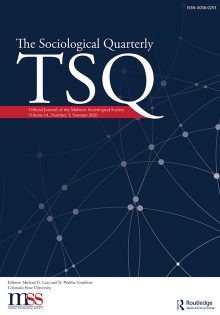Authored by David Pettincchio and Michelle Lee Maroto, this new paper addresses whether and how unions help to dismantle workplace inequality experienced by people with different types of disabilities. Using pooled 2009–2018 CPS MORG data of 630,799 respondents covering almost a decade, the authors find that union membership benefits workers with disabilities more than other groups and workers with the severest disabilities benefit the most from being in unionized work. Because union membership increases disabled workers’ weekly earnings by more than double the increase experienced by people without disabilities, it brings unionized disabled workers closer to overall average earnings with important implications for inequality.
Unionized work reduces earnings inequality between disabled and non-disabled workers, but earnings boosts associated with union membership generate more pronounced inequality within groups of workers with disabilities depending on whether individuals have access to unionized employment. We find that gaps among employed unionized and nonunionized disabled workers are significantly larger than those experienced by unionized and nonunionized female, Black, and Hispanic workers.
